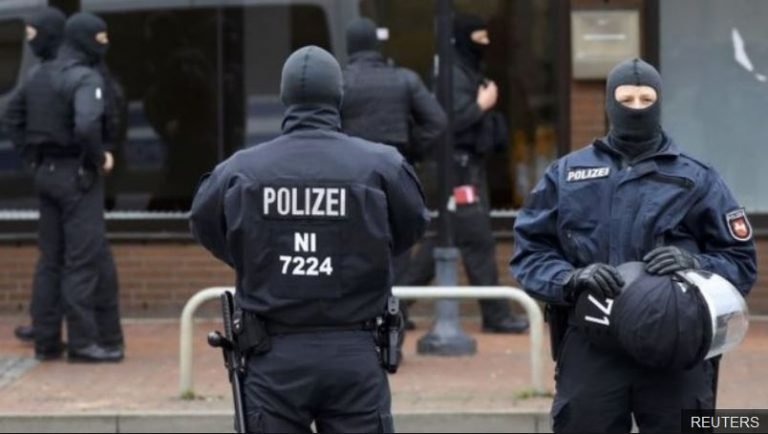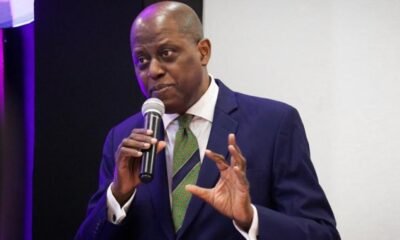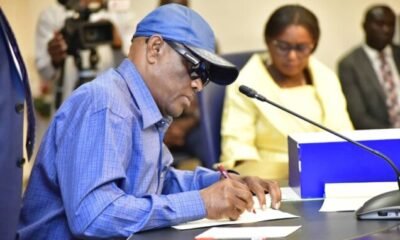News
Fuel Subsidy Removal: The chicken has come home to roost by Lateef Adewole
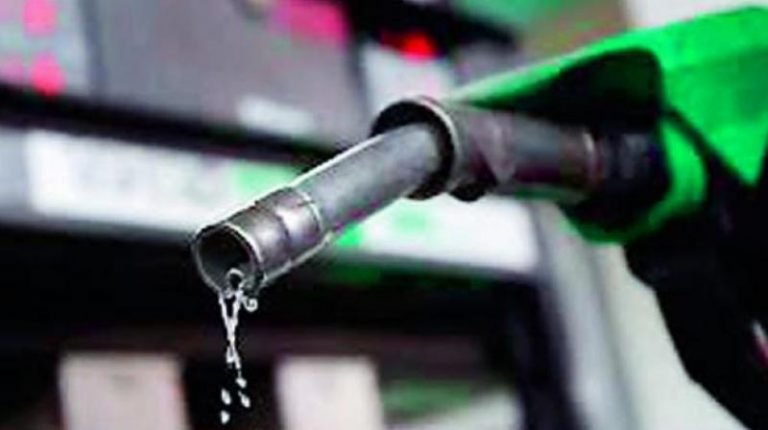
The Insight by Lateef Adewole
Just like yesterday, it came to me like a movie, vividly replaying in my head. It was no other thing than the massive protests across the country that greeted the announcement of the total deregulation of the Premium Motor Spirit (PMS) popularly known as petrol in Nigeria. On New Year’s Day in 2012, the administration of former President Jonathan had announced the government’s exit from subsidizing for petrol.
Many reasons were proffered such as the act being unsustainable, the fraudulent practices that shrouded it, the wastage that it constituted to the economy, the fact that the ordinary people for which it was meant were not benefiting proportionally from it since majority in that category did not have cars and that only the rich and middle classes, who could afford to possess two or more cars, were the actual beneficiaries. This and numerous other reasons were advanced to justify such action.
That removal pushed the price of petroleum from 65 to about 140 naira per litre at the pump, with each marketer determining their own price. The protests I talked about were carried out in many major cities, particularly in the South-West and other Southern States generally. One however stood out. It was the Lagos rally!
As at that time, Nigerians hadn’t witnessed such a mammoth crowd before, except maybe during the period that followed the annulment of June 12, 1993 presidential election won by the late business mogul, Chief MKO Abiola (may his soul rest in peace). The 2012 fuel subsidy protest was codenamed “Occupy Nigeria”. The Freedom Park at Ojota in the heart of Lagos, was the major convergence point of all protesters across Lagos.
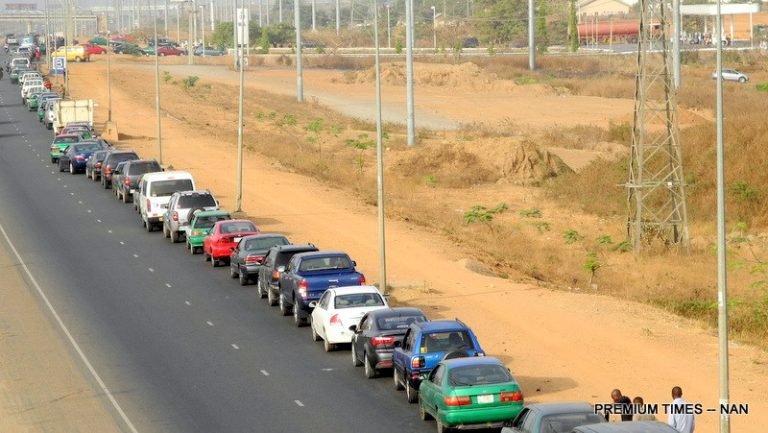
Fuel queues used to be regular fixtures in Nigeria
For almost a week, citizens woke up from their houses, defied all the stress of getting transportation to get to Ojota. Many trekked kilometers from their homes since the Nigerian Labour Congress (NLC) and Trade Union Congress (TUC) had already declared a nationwide strike. There was no work and transport owners had withdrawn their vehicles from the roads. Neither the rains nor the scorching sun could deter the people. It was monumental. The people were treated with live performances from top musicians of the time from all genres; fuji, hip-pop, apala, juju, afro-beats, and so on. It was a carnival of sorts.
Water in sachets and bottles, were supplied in abundance, some even got light refreshments like meat pies, buns, puff-puff, biscuits, etc. These couldn’t have catered for the majority, given the number of people present, that’s impossible. Till date, I still wonder who actually financed such expenses. It definitely couldn’t have been accidental. Some people were behind it considering how organised it was.
After almost one week of deadlock in negotiations with the labour leaders and stakeholders, the National assembly under the leadership of Senator David Mark, which was on recess, had to hurriedly reconvene. He led the team from NASS which eventually broker a truce. There were compromises on each side of the government and labour. The pump price was reduced to 97 naira per litre with conditions attached.
It was agreed that the savings that will come from the partial deregulation will be used for infrastructural developments. There were several palliatives proposed as well like introduction of mass transport by the federal government to alleviate the suffering of the people due to the consequential increase in transport fares. Rail transport system was promised to be revived.
That actually gave life to what eventually became of some train operations, especially the building of Abuja-Kaduna axis which has remained the flagship till date. The present administration has done so well in building more rail systems across the country. A poverty alleviation programme SURE-P was introduced. YouWin was another, Presidential Scholarship awards to study in higher institutions home and abroad were introduced for many less privileged but brilliant students. Soft loans were packaged to support young entrepreneurs and many more.
After the negotiation and reduction in the price, peace reigned once more. What made that protest spectacular and of serious concern to the government at the time was its comparison from some quarters with the “Arab spring” which was at the time sweeping away rulers of many countries from Tunisia to Egypt, from Libya to Syria, from Bahrain to Yemen. And so on. Governments were being overthrown by the civilian populace, some with the backing of the security forces.
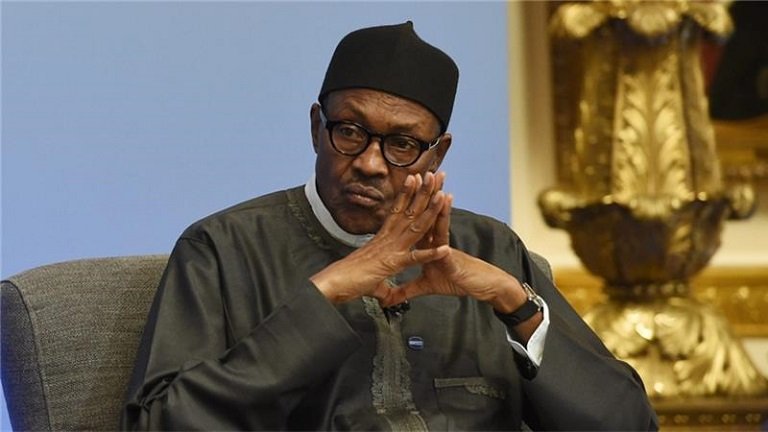
President Muhammadu Buhari
Barely a year earlier, after the 2011 presidential election, Nigeria had its fair share of a taste of violence when Jonathan was declared winner. Hell broke loose across many states in the Northern part. Those who believed that the main opposition then, General Muhammadu Buhari (Rtd.) on the CPC platform should have won the election despite losing with a very wide margin of 10 million votes, wrecked havoc. Jonathan scored about 22 million votes against Buhari’s 12 million. That expectation was quite ludicrous.
They burned houses, properties, maimed and killed innocent people. About ten Corps members who were deployed as INEC ad-hoc staff were killed in Bauchi and few other states. It was an unfortunate incident. So, a protest by people from the stronghold of another opposition party in the election, Action Congress of Nigeria (ACN) in South West, became suspicious and worrisome.
That scar on the ruling party PDP never healed. They never recovered from it. It hunted them till they left office in 2015. As God would have it, by 2013, all the opposition parties regrouped and merged to form what we now have as APC. And fortunately, they won the presidential election in 2015 with General Buhari (Rtd.) as candidate. It was unprecedented that an opposition party defeated a sitting president. All thanks to Jonathan whose statement has become “words on marble” he is known to have frequently said “My ambition is not worth the blood of any Nigerian”.
When he was faced with the stark reality of his statement in 2015 as the results of the presidential election showed he was about losing, he rose above his self interest, and lived out his words. He displayed what he had preached for years in that quote by calling to congratulate Buhari, even when the final results were yet to be declared. He saved Nigeria from ruins, which many doomsday predictors had claimed that Nigeria would break-up in 2014. As a result of that singular call, the feverish tension that gripped the whole country was doused. Buhari became winner and the rest is history.
Of note is that President Buhari never believed there was any subsidy or there was supposed to be any on the petroleum products. He criticized it and called it scam in those years while in opposition as a presidential candidate. Even at the early stage of his administration, he refused to pay outstanding subsidies to marketers who have previously imported, which incapacitated them from importing PMS. This led to massive fuel scarcity from November 2015 to January 2016.
Fast forward to 2016, out of the blues, the price of PMS was increased to 145 naira. The excuse then was that the only way the scarcity could be avoided was to increase the price of PMS so as to block the corrupt drain pipe through smuggling since its price in Nigeria was the lowest among her neighbouring countries. They claimed it will eliminate subsidy and some other kinds of reason, just as given in 2012 by the previous administration, for which they were resisted but now there was not as much as a whimper.
Surprisingly, subsidy surreptitiously crept back into the PMS importation under another nomenclature; “under-recovery”, for which only NNPC could do over 95 percent of. This is the term that NNPC management used to describe taking money from the source without going through appropriations in NASS and then remitting whatever balance they had left to the federation account. This created shortfalls in revenue expectations several times.
Before you know it, the figures quoted as daily PMS consumption suddenly ballooned. Instead of the previously criticized figures of 30 to 35 million litres per day, we started getting 55 to 65 million. This is outrageous right? The subsidy or under-recovery climbed into hundreds of billions naira and even over a trillion naira. That was “double wahala for dead body” (as Fela would say). Nigerians were paying higher price for PMS and still losing huge money in under-recovery. And it is being unconstitutionally done.
Finally, last week, the government showed they meant business about removing subsidy fully. When the crude oil price crashed in March/April this year, NNPC announced floating of the price of PMS. This saw to a price reduction and everyone hailed the move. As the coronavirus pandemic is gradually being overcome and economies opening up, the price of crude oil has picked up, which warranted a gradual increment in the prices. Now with the announcement of about 151.6 naira per litre ex-depot price having shot the pump price to between 158 to 162 naira. The reality has dawned on all.
Since then, everyone has been groaning under the weight of the increase. Moreover, it happened at the same period that the electricity tariff was increased. That was double jeopardy. Still yet, we have not seen any protest from the usual quarters.
Several videos reminding us of the “Occupy Nigeria” rally in Ojota have resurfaced since then. Majority of those who stood on that platform and spoke strongly against the removal in 2012 are still alive and well, except a few. None of them has spoken against it this time around. Many who championed the anti-goverment protests in 2012 are now in government, and have done exactly what they previously fought against. What changed? Power! What hypocrisy.
I supported the deregulation in 2012 and I could remember the level of attacks I received. This time around, my position still remains the same. My reasons are the same as given by the government in 2012 and now. My only grouse is the timing. Frankly, things are very tough for Nigerians right now from the aftermath of Covid-19. To now heap additional burden on the citizens through the petrol and electricity price increase is insensitive and callous. The economy is in shambles. Costs of food and living in general have skyrocketed astronomically. Life is hard.
In situations like this, political office holders are rarely “seriously” affected. This makes it convenient for them to do such things as turning a blind eye. They live their ostentatious lives which are paid for with public funds. They spend government money on less important things. They pay themselves humongous, undeserving remunerations at the expense of the rest of the citizens. They buy new cars, foreign ones for that matter at huge prices and go on foreign trips. So, where is the leadership by example? Where is their own sacrifice? They live in another world different from the rest of us.
Now that the chickens have come home to roost and “eyes don clear”. We need to start making necessary adjustments in our lifestyles, starting from the leadership of the country at all levels; federal, state and local governments. We cannot continue to do the same thing over and over and expect different results. That’s insanity, according to Albert Einstein. Savings from subsidy should go to infrastructural developments and support real production. Sectors like agriculture, manufacturing and the likes. These will help the masses one way or another.
May God continue to protect us and guide us aright.
Lateef Adewole is a political analyst and social commentator can be reached by email lateefadewole23@gmail.com or via WhatsApp +2348020989095 and @lateef_adewole on Twitter


